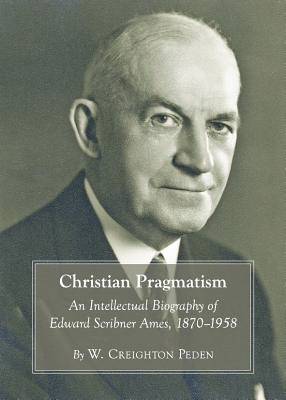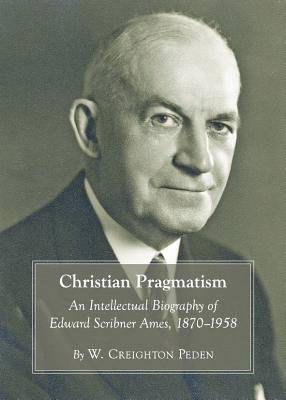
- Retrait gratuit dans votre magasin Club
- 7.000.000 titres dans notre catalogue
- Payer en toute sécurité
- Toujours un magasin près de chez vous
- Retrait gratuit dans votre magasin Club
- 7.000.000 titres dans notre catalogue
- Payer en toute sécurité
- Toujours un magasin près de chez vous
Christian Pragmatism: An Intellectual Biography of Edward Scribner Ames, 1870-1958
W Creighton Peden
Livre relié | Anglais
115,45 €
+ 230 points
Description
Edward Scribner Ames (1870-1958) was raised in the American Midwest as his family moved westward after the Civil War. His father was a minister in the Disciples of Christ, which was later changed to the Christian Church. In between serving several small churches in the Iowa area, his father did various odd jobs. Young Ames joined the Church one Sunday when his father was preaching, and was baptized in the river that afternoon. Ames was able to attend Drake College in Des Moines, Iowa, and did a post-graduate year here. He then went to Yale University's Divinity School, where he was placed in the senior class because of his previous studies. Following the BD, he spent two years toward a PhD at Yale. In 1894, Dr William R. Harper, whom Ames had known at Yale, was the new president of the new University of Chicago. Harper arranged for a fellowship for Ames to complete his dissertation and become the first PhD student under the departmental leadership of John Dewey. Ames taught the next three years at Butler College, a Disciples institution. He then returned to Chicago to become minister of a very small Disciples Church located near the center of the University. Soon after his return as a minister, Dewey offered him part time teaching in the philosophy department. As the years went by Ames taught more until he carried a full teaching load, ministered to the people of his Church, raised money to build the Disciples Divinity House at the University of Chicago, served as Dean of the DDH, and retired as Chairman of the philosophy department. He continued serving as minister to his Church for five more years. Ames taught for thirty five years at the University of Chicago and served in his final ministry for forty years. Ames would have nothing to do with theology, which he considered to be a process of looking for a black cat in a dark room that is not there. Being strongly influenced by William James, Ames published Psychology of Religious Experience in 1910, in which he presents a pragmatic view of religious experiences from the perspective of the modern science of his day. If there is a God, this God must be immanent in nature. Humans are relational animals who have evolved like other animals. In considering Christianity, Ames begins with Jesus and seeks a God as good as Jesus. For Ames, Jesus' greatness is to be found in his ethical and spiritual teachings. God is the total living process, which encompasses our intelligence and conduct. This God is not supernatural but wholly natural. Ames was a prolific writer. In order to expose the development of his thought, this volume presents his ideas historically by considering his major writings as well as journal articles, which addressed issues not completely considered in other writings. The companion volume, Edward Scribner Ames' Unpublished Manuscripts, contains important lectures as he relates his pragmatism to John Dewey and other pragmatic thinkers, as well as attempting to lead Disciples' ministers to expand their thought.
Spécifications
Parties prenantes
- Auteur(s) :
- Editeur:
Contenu
- Nombre de pages :
- 270
- Langue:
- Anglais
Caractéristiques
- EAN:
- 9781443831987
- Date de parution :
- 01-09-11
- Format:
- Livre relié
- Format numérique:
- Genaaid
- Dimensions :
- 150 mm x 208 mm
- Poids :
- 544 g

Les avis
Nous publions uniquement les avis qui respectent les conditions requises. Consultez nos conditions pour les avis.






